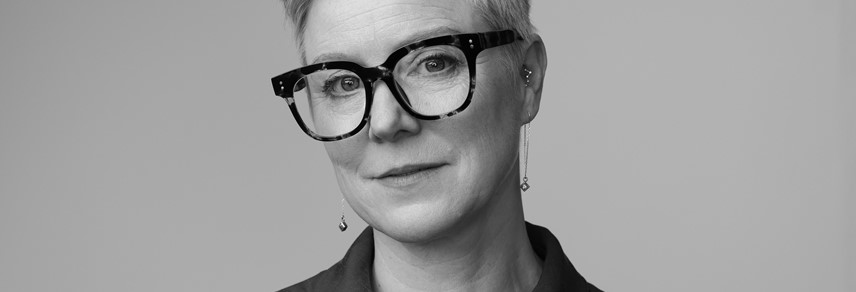
FIVE MINUTES WITH DEBBIE ZAMAN
PR agency With is launching a new media training programme to improve female representation in communications. Debbie Zaman, CEO and founder of With, discusses the drive behind the initiative.
What was the inspiration behind With's new training initiative, and what does it hope to achieve?
In 2022, we came across an enlightening report on 'The Gender News Gaps' from Women In Journalism and Man Bites Dog, clearly demonstrating the gender disparity seen in newsrooms and media coverage across the UK.
The report reveals women are still outnumbered five to one as expert contributors in the media, and only 28% of journalists reported that their organisations had set targets to improve the representation of female expert contributors in their reporting.
So the With team decided to offer free media training to senior women. We want to equip a wider range of spokespeople with specialist media skills and start to address the gap in the representation of women’s voices in the media.
We developed a range of partnerships designed to get to senior women, via Management Today, The Heard (a spokesperson index for women and non-binary people in fintech) and one of Natwest's entrepreneur accelerators.
The sessions are delivered by With’s (female) managing director and CEO, who have trained many c-suite executives, as well as journalists themselves, as media spokespeople.
What impact has the initiative had so-far?
Right from the get go, we were inundated with responses from a wide range of organisations: from senior executives from international listed businesses to early stage founders.
We also rolled out a discounted offer to any of our clients who put forward a mixed gender group of spokespeople. We're pleased that over 30% took us up on this offer.
We have now trained dozens of women spokespeople in areas like AI, martech, fintech and e-commerce.
What feedback has it received?
With's media training initiative has been welcomed with open arms. Kate Magee, the editor of our launch partner Management Today, stated: “We need more female voices in business” and this is something that was echoed by the participants.
Another trainee, Chanelle Pattinson, said: "Media training for women is crucial for equipping them with the skills they need to navigate the media world, ensuring that their voices are heard and their stories are accurately and fairly represented."
For us, there’s nothing like that moment in the session when the women we are training realise they can handle the trickiest media questions and they do have a right to tell their business story.
In your career in PR and comms, do you believe there has been much progress made in helping get women into leadership positions?
Strides have definitely been made and it is encouraging to see women founding businesses and taking top level jobs. However, when you dig into the data it is actually still quite depressing. The latest global women in PR annual index shows 64% of boardroom positions are held by men. 15% state their board is made up entirely of men and just 9% say their board is made up of mostly, or all women. As a company with a female CEO and female MD, we feel it is part of our responsibility to champion senior women in business and our media training initiative is one key part of that.
What does the industry need to do to improve its approach to gender equality?
Creating a greater culture of inclusion in the industry involves focusing on three key components:
- Communicate - foster an environment where women are encouraged to share their experiences and then adapt to them
- Coach: we should provide tailored career coaching for women who are looking to move forwards
- Celebrate: celebrating and uplifting women doing great things is key - not only within our companies but also out in the wider industry.
But let’s be honest, equitable pay still sits at the heart of workplace equality. Great strides are being made by many, but not by enough. The softening of the Government’s approach to mandated reporting puts an even greater emphasis on the voluntary production of this data. Finding the gap and fixing it MUST remain a major priority for business in 2023.
How can gender diversity within teams be improved?
Gender diversity within teams starts with accountability. If there are clear goals on gender diversity that everyone within the organisation supports, someone very senior within the business should then hold progress against them to account. A demonstration of an ongoing commitment to getting things right is a powerful first step.
What common mistakes are made when implementing a gender diversity strategy?
Excuses. Whether it is bemoaning the fact some women take time off to have families or that there 'just aren't enough women in my sector', what the world of work needs to see in 2023 is less excuse-making and more committed action towards systemic and long lasting change on workplace gender equality.
Assumptions. Companies need to get their hands on authentic insights: from the women on their teams as well as wider groups of working women. Only then can they put in place actions that will make a valuable difference.
Smoke and Mirrors. Even hiring a head of DE&I doesn’t always affect the change we might hope for if a business doesn’t commit to it. Ultimately someone very senior needs to be accountable for genuine delivery on gender equality. There’s a lot of conversation about making a reduction in environmental impact part of executive pay packages. Why not the same for achieving gender equality?



